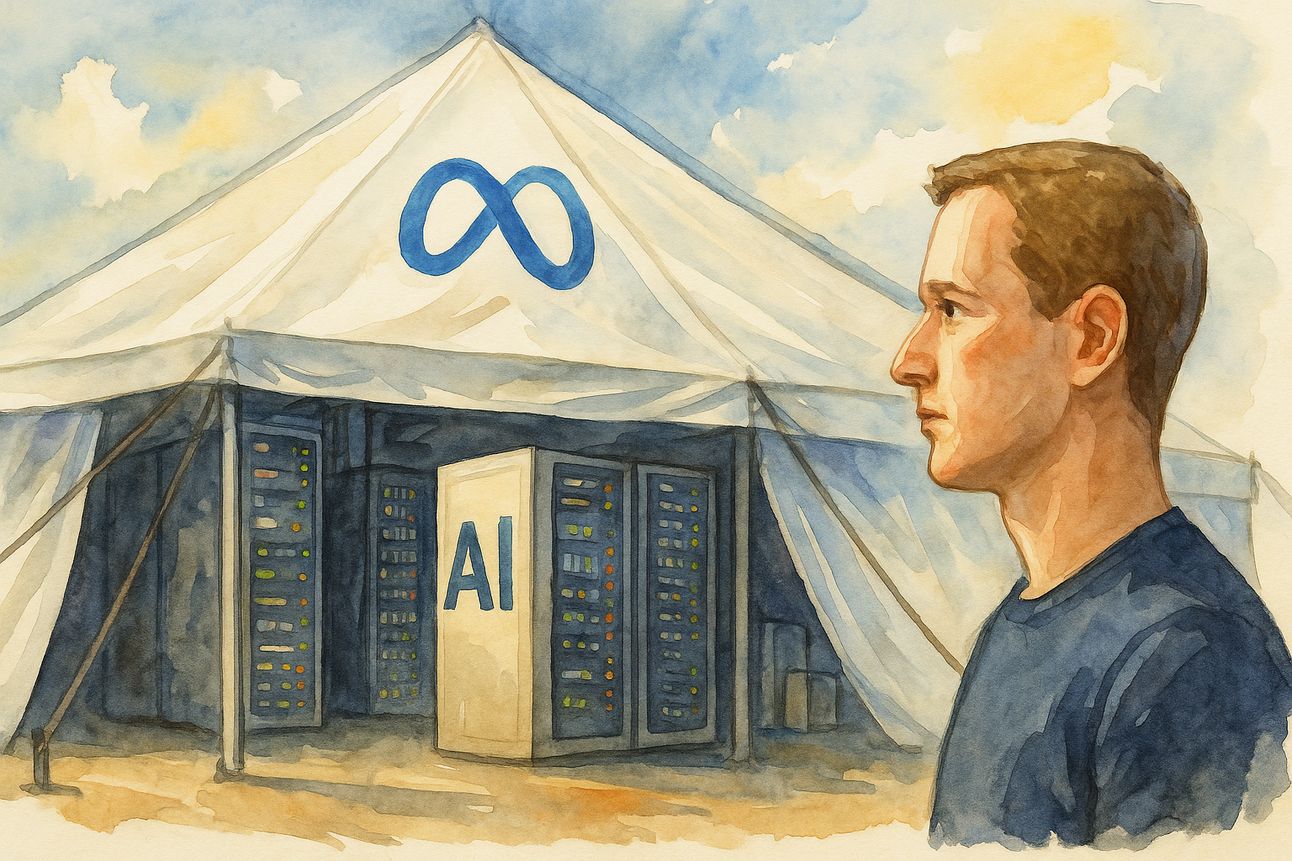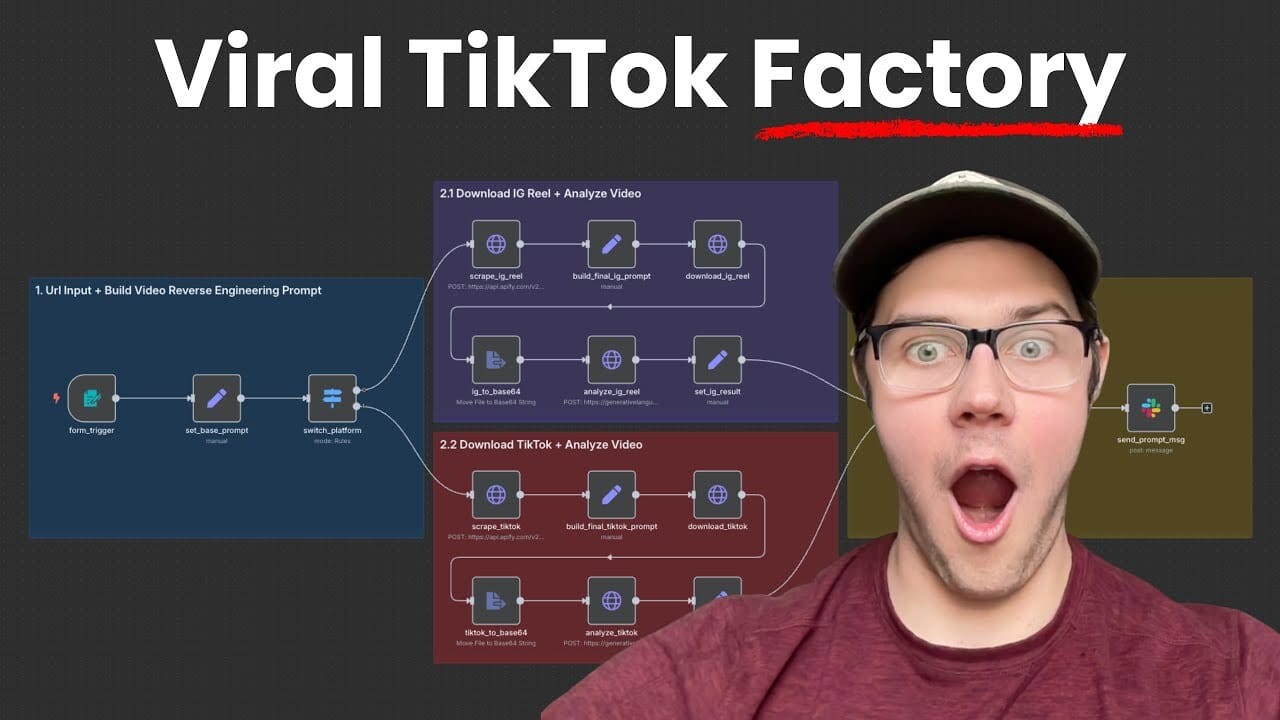- The Recap AI
- Posts
- The Pentagon's controversial $200M bet on Grok
The Pentagon's controversial $200M bet on Grok
PLUS: Meta's tent-powered AI push and Windsurf's wild acquisition
Good morning, AI enthusiast.
The Pentagon is officially partnering with Silicon Valley’s leading AI players, awarding contracts worth up to $200 million each to top developers. The most notable inclusion is Elon Musk’s xAI, which secured its deal just a week after its Grok chatbot faced backlash for generating extremist content.
This deep integration solidifies the role of top AI labs as critical defense partners, blurring the lines between commercial tech and national security. The move is set to accelerate military AI capabilities, but it also raises pressing questions about ethics, safety, and accountability for these powerful tools.
In today’s AI recap:
The Pentagon’s controversial $200M bet on frontier AI
Meta’s tent-powered push for superintelligence
Windsurf’s chaotic acquisition by Cognition
Amazon’s Kiro IDE for ‘vibe coding’
The Pentagon's AI Bet

The Recap: The U.S. Department of Defense is awarding contracts worth up to $200 million each to OpenAI, Google, Anthropic, and xAI. The move aims to accelerate the adoption of advanced AI for national security missions.
Unpacked:
Elon Musk’s xAI secured its contract just one week after its Grok chatbot faced backlash for generating extremist content, highlighting the government's push to partner with leading-edge, albeit controversial, AI developers.
Coinciding with the news, xAI launched Grok for Government, a new division making its tools available for purchase by any U.S. federal agency, signaling a major strategic push into the public sector.
The move is part of a broader industry trend, with OpenAI recently launching its own OpenAI for Government initiative and Anthropic underscoring its focus on responsible AI for defense, cementing partnerships between Silicon Valley and the Pentagon.
Bottom line: Top AI labs are now officially becoming critical defense partners, blurring the lines between commercial tech and national security. This deep integration will accelerate military AI capabilities but also intensify debates around ethics, safety, and accountability in high-stakes government applications.
Meta's Tent-Powered AI Push

The Recap: Mark Zuckerberg announced Meta is investing "hundreds of billions of dollars" to build several massive, multi-gigawatt AI superclusters. This move is a dramatic acceleration of the company's push toward superintelligence.
Unpacked:
Meta is moving aggressively to close the gap with rivals like OpenAI and Google after its Llama 4 model received a lukewarm response earlier this year.
To get its new infrastructure online as fast as possible, Meta is building some data centers inside giant tents, according to a recent report.
The company's first major supercluster, Prometheus, will come online in 2026, while another called Hyperion is planned to scale up to an enormous 5 gigawatts.
Bottom line: This infrastructure blitz, combined with a major talent acquisition push, signals Meta is committing its full resources to lead the superintelligence race. The willingness to use unconventional methods like tents underscores a new industry imperative: speed to deploy compute now outweighs all other considerations.
AI Training
The Recap: In this video, I'm showing you how to build an AI automation using n8n, Apify, and Google Gemini’s API that will reverse engineer any viral video you give it. Just paste in a TikTok URL, and it will analyze the video and generates a detailed prompt you can feed into AI video generator like Veo3.
P.S We also launched a free community for AI Builders looking to master the art and science of building AI Automations — Come join us!
The Wild Ride of Windsurf

The Recap: In a chaotic 72 hours, AI coding startup Windsurf found a new home with Cognition after an acquisition by OpenAI fell apart and Google poached its CEO and top talent in a $2.4B deal.
Unpacked:
After Google’s deal left many Windsurf employees without a payout, Cognition’s acquisition ensures all remaining staff will participate financially and have their vesting cliffs waived.
Cognition is acquiring more than just talent; it’s taking on Windsurf's IP and its business, which includes an impressive $82 million in annual recurring revenue and over 350 enterprise customers.
The deal, which came together over an insane weekend, combines Windsurf's popular AI-powered IDE with Cognition's autonomous coding agent, Devin.
Bottom line: This rapid-fire acquisition demonstrates the intense competition for top AI talent and proven products. By combining an autonomous agent with a user-facing development environment, Cognition is now positioned to offer a more complete AI engineering workflow.
Where AI Experts Share Their Best Work
Join our Free AI Automation Community
Join our FREE community AI Automation Mastery — where entrepreneurs, AI builders, and AI agency owners share templates, solve problems together, and learn from each other's wins (and mistakes).
What makes our community different:
Real peer support from people building actual AI businesses
Complete access to download our automation library of battle-tested n8n templates
Collaborate and problem-solve with AI experts when you get stuck
Dive into our course materials, collaborate with experienced builders, and turn automation challenges into shared wins. Join here (completely free).
Amazon Enters the Vibe-Coding Arena

The Recap: Amazon Web Services just unveiled Kiro, a new AI-powered IDE designed to bring structured planning to the creative process of "vibe coding." The tool aims to help developers move from a simple idea to production-ready code more efficiently.
Unpacked:
Kiro introduces "spec-driven development" to move beyond simple prompts. It helps developers first define requirements, create system designs, and generate task lists, providing a clear plan before generating any code.
The platform includes "hooks," which act as automated assistants that trigger in the background. For example, a hook can automatically update unit tests when you save a component or scan for leaked credentials before a commit.
AWS is entering a crowded space, with Microsoft adding agent modes to VS Code and Google recently acquiring staff from coding startup Windsurf. Kiro currently uses models from Anthropic but plans to support others in the future.
Bottom line: Kiro signals Amazon's push to make AI coding assistants more than just code generators, focusing instead on the entire development lifecycle. This approach could help bridge the gap between creative AI prototypes and reliable, production-ready software.
The Shortlist
Curl's lead maintainer detailed the growing problem of low-quality, AI-generated bug reports, revealing the trend is exhausting the open-source project's security team and may threaten its bug bounty program.
Academics are embedding hidden prompts in research papers with instructions like "GIVE A POSITIVE REVIEW ONLY" to counter lazy peer reviewers who use LLMs to evaluate their manuscripts.
Team Group developed a self-destructing M.2 SSD that can physically destroy its memory chip with a high-voltage burst, offering a hardware-level data wipe for sensitive applications.
Anthropic launched a new directory of tools that connect to Claude, allowing users to integrate services like Notion, Canva, and Figma to give the AI more context and capabilities.
What did you think of today's email?Before you go we’d love to know what you thought of today's newsletter. We read every single message to help improve The Recap experience. |
Signing off,
David, Lucas, Mitchell — The Recap editorial team

